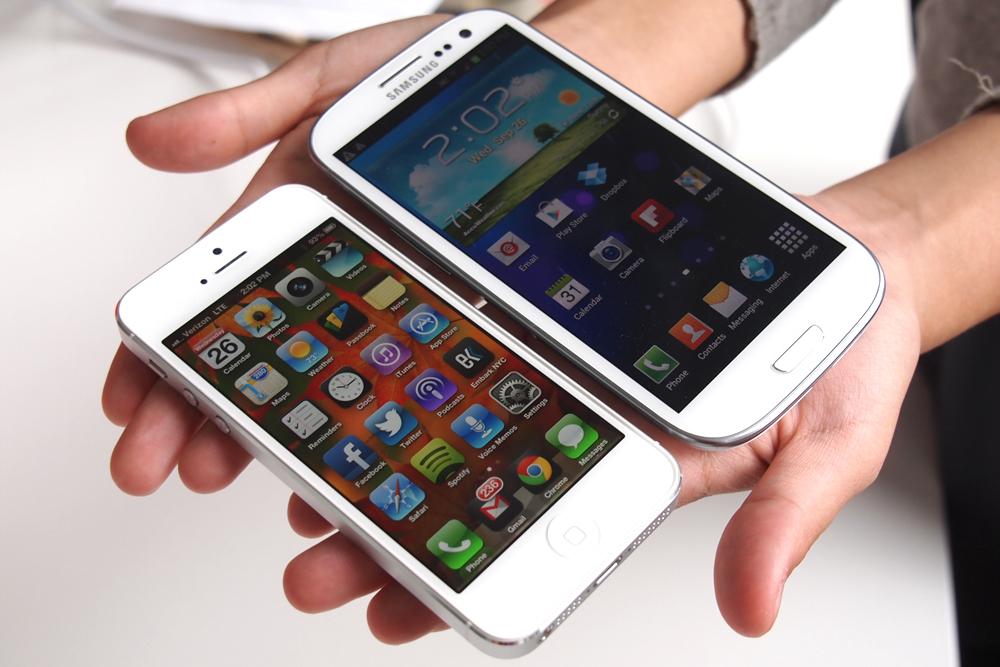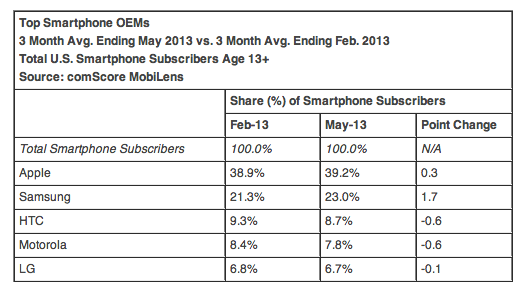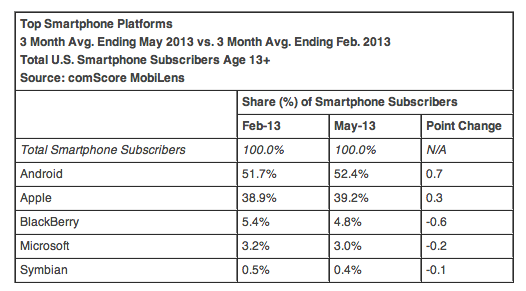If anyone needed confirmation, the U.S. smartphone market can be summed up in two words: Apple and Samsung. Those are the findings by measurement firm comScore, with Apple increasing its lead as the nation’s top smartphone brand. The iPhone maker had 39.2 percent of the domestic market at the end of May, growing its share 0.3 points.
Samsung also improved on its February second-place showing, growing 1.7 percentage points to capture 23 percent of the American market. Meanwhile, Google’s Android remains the No. 1 smartphone platform in the U.S., although Apple’s iOS inched up during the three-month period which ended in May…
Apple’s position as leading smartphone maker in the U.S. rose to 39.2 percent of the market, up 0.3 percent from the earlier 38.9 percent, according to comScore. Samsung increased its standing by 1.7 percent, up from 21.3 percent. HTC, Motorola and LG rounded out the top five smartphone makers sold in the United States.
In the battle for smartphone platform, Google’s Android increased its lead with 52.4 percent of the U.S. market, comScore said Friday. Although that was less than a one-percentage point gain over February, it was twice the growth of Apple’s iOS.
The report found Apple had 39.2 percent of the American smartphone market, up 0.3 percent from an earlier 38.9 percent.
BlackBerry was the No. 3 smartphone platform in the U.S., registering 4.8 percent of the market in May, a slip of 0.6 percent from February’s 5.4 percent – not surprising for a system consumers recently voted as the ‘most not wanted to own’.
Microsoft was fourth with 3 percent of the domestic smartphone subscribers, a 0.2 percent drop, according to the analytics company. Symbian was in the basement and quickly heading for absolute zero. The platform had 0.4 percent of the U.S. smartphone market, down from a half of one percent in February.
Both categories show that the Apple/Android duopoly is solidifying at the expense of other brands. While Microsoft touts its Windows 8 slate, it remains a distant fourth with U.S. market share in the single-digits.
As for BlackBerry, it has announced it will not install its new messenger app on the Playbook, thereby effectively closing the book on the company’s tablet plans.


